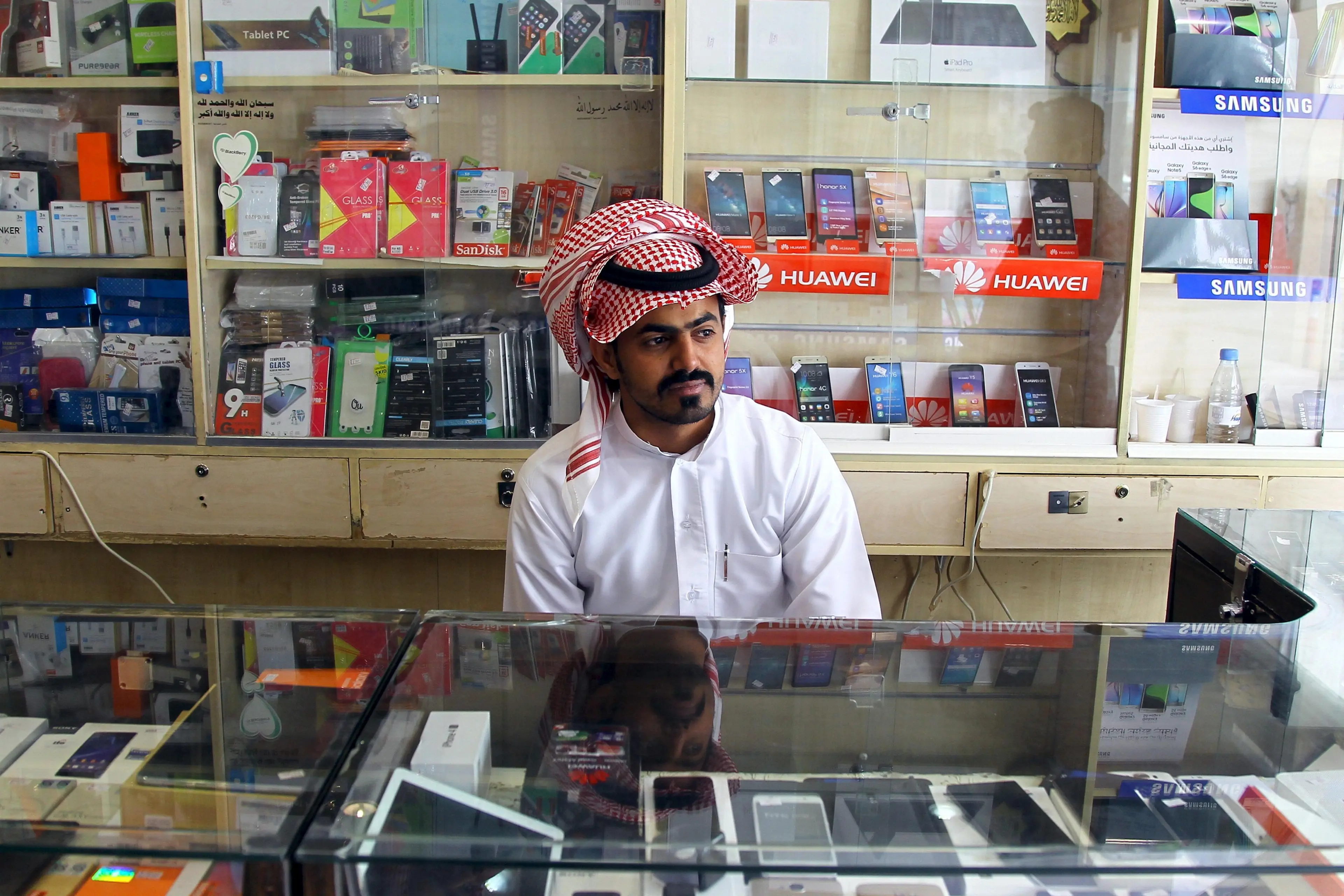PHOTO
The wages of employees in Saudi Arabia edged higher in the second quarter of this year, the latest figures from the General Authority for Statistics showed.
The average monthly wages for Saudi employees increased to 9,911 Saudi riyals in the second quarter of the year, from 9,884 Saudi riyals in the first quarter.
However, the unemployment rate among Saudis increased to 12.8 percent in the second quarter, from 12.7 percent in the first quarter, despite government efforts to bring this down.
“The wages have been affected as Saudisation in the retail industry, especially women’s fashion and telecommunications, forced higher compensation for [the] Saudi workforce,” Dr. Adil A. Al-Qusadi, CEO of Gulf Think Tank told Zawya by email.
“On top of that, a wave of outlets shut down due to lack of qualified Saudi staffing. [This] has hit the market and minimised the vacancies,” he added.
Non-Saudi employees also saw an increase in their average monthly wage to 6,195 Saudi riyals in the second quarter, from 5,959 Saudi riyals in Q1, according to the General Authority of Statistics.
Austerity measures introduced by the Saudi government has led to an economic slowdown and data has shown that the kingdom slipped into a recession during the second quarter.
In its latest Country Report on the kingdom, the IMF highlighted the risks of how ongoing reforms will impact the economy and employment rates.
“The failure to turn reforms into growth and ultimately jobs for Saudis in the private sector will either lead to rising unemployment and social pressures or increasing public employment which will have negative fiscal implications,” the report said.
The fund also noted that authorities indicated considering slowing the pace of fiscal adjustment, given the economic slowdown.
“The labour market in Saudi Arabia has been through an unstable legislative environment for the last year,” Al-Qusadi told Zawya.
“Merging social development with labour in the same ministry has added a further strategic and tactical burden on the shoulders of the ministry that is traditionally managed centrally.”
© ZAWYA 2017
The average monthly wages for Saudi employees increased to 9,911 Saudi riyals in the second quarter of the year, from 9,884 Saudi riyals in the first quarter.
However, the unemployment rate among Saudis increased to 12.8 percent in the second quarter, from 12.7 percent in the first quarter, despite government efforts to bring this down.
“The wages have been affected as Saudisation in the retail industry, especially women’s fashion and telecommunications, forced higher compensation for [the] Saudi workforce,” Dr. Adil A. Al-Qusadi, CEO of Gulf Think Tank told Zawya by email.
“On top of that, a wave of outlets shut down due to lack of qualified Saudi staffing. [This] has hit the market and minimised the vacancies,” he added.
Non-Saudi employees also saw an increase in their average monthly wage to 6,195 Saudi riyals in the second quarter, from 5,959 Saudi riyals in Q1, according to the General Authority of Statistics.
Austerity measures introduced by the Saudi government has led to an economic slowdown and data has shown that the kingdom slipped into a recession during the second quarter.
In its latest Country Report on the kingdom, the IMF highlighted the risks of how ongoing reforms will impact the economy and employment rates.
“The failure to turn reforms into growth and ultimately jobs for Saudis in the private sector will either lead to rising unemployment and social pressures or increasing public employment which will have negative fiscal implications,” the report said.
The fund also noted that authorities indicated considering slowing the pace of fiscal adjustment, given the economic slowdown.
“The labour market in Saudi Arabia has been through an unstable legislative environment for the last year,” Al-Qusadi told Zawya.
“Merging social development with labour in the same ministry has added a further strategic and tactical burden on the shoulders of the ministry that is traditionally managed centrally.”
© ZAWYA 2017





















